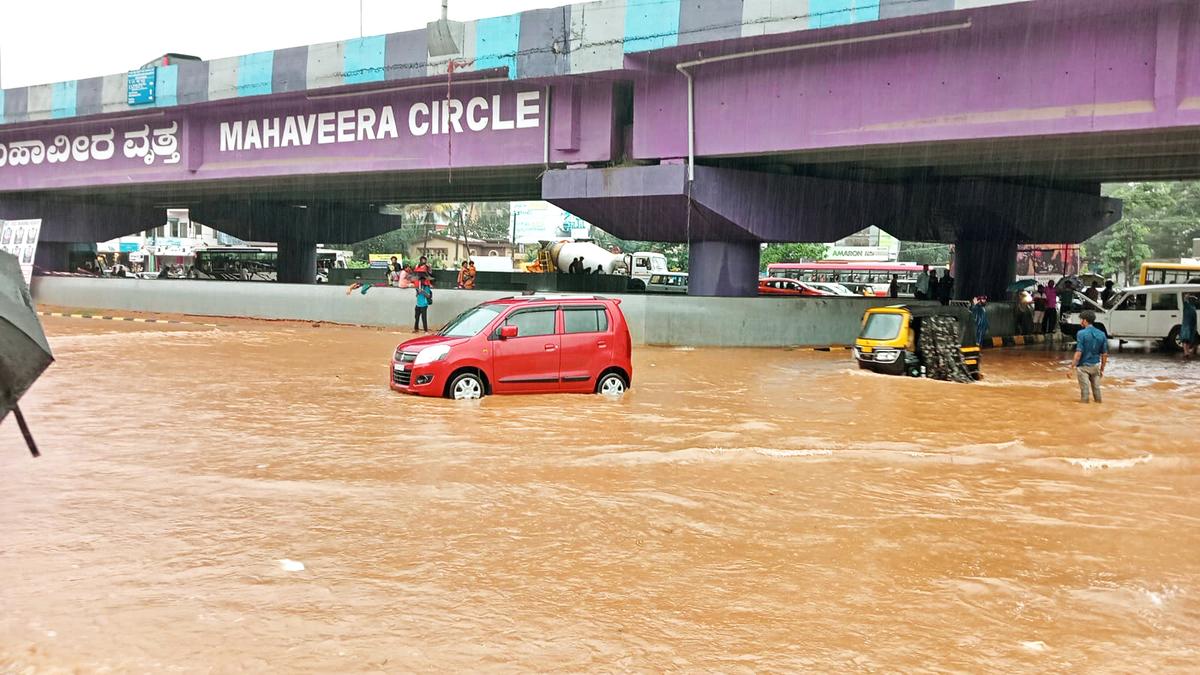
Top news developments in Karnataka on July 4, 2023
The Hindu
Top news developments in Karnataka on July 4, 2023
1. After Governor’s address yesterday, Budget session gets going today with regular Assembly and Council sessions.
2. In an unprecedented development, the budget session this time began without a Leader of Opposition. The faction-ridden BJP could not select one despite veteran B.S. Yediyurappa vising Delhi to resolve the issue. With two Central observers set to arrive today, there may finally be resolution.
3. National Centre for Biological Sciences (NCBS) is hosting the inaugural programme of Rohini Nilekani Centre for Brain and Mind today. Speakers are Prof. Jayaram Chengalur, Director of the Tata Institute of Fundamental Research, Prof. L.S. Shashidhara, Centre Director of NCBS, Dr. Prathima Murthy, Director and a senior professor of psychiatry at NIMHANS, Rohini Nilekani, Chairperson, Rohini Nilekani Philanthropies. The programme will be held on the NCBS campus, Ballari Road, Rajiv Gandhi Nagar, from 10.30 a.m. to 12 noon.
4. Bengaluru Metro Purple Line services were disrupted this morning due to a signalling glitch, according to Bangalore Metro Rail Corporation Limited (BMRCL). Officials said there could be delays on the Purple Line.
Dakshina Kannada Deputy Commissioner M. P. Mullai Muhilan declares holiday for education institutions in Mangaluru sub-division due to heavy rains. Schools and colleges in Mangaluru, Mulki, Bantwal, Ullal and Moodbidri taluks closed. Civic workers began removing the trash accumulated in Pumpwell area, which was flooded due to heavy rains on July 3.
Second day session of One Week One Laboratory at CFTRI, and release of products today.
1. Seers and heads of different mutts to address a media conference in Kalaburagi opposing the government’s move to withdraw legislation on cattle slaughter and conversion.

“Writing, in general, is a very solitary process,” says Yauvanika Chopra, Associate Director at The New India Foundation (NIF), which, earlier this year, announced the 12th edition of its NIF Book Fellowships for research and scholarship about Indian history after Independence. While authors, in general, are built for it, it can still get very lonely, says Chopra, pointing out that the fellowship’s community support is as valuable as the monetary benefits it offers. “There is a solid community of NIF fellows, trustees, language experts, jury members, all of whom are incredibly competent,” she says. “They really help make authors feel supported from manuscript to publication, so you never feel like you’re struggling through isolation.”

Several principals of government and private schools in Delhi on Tuesday said the Directorate of Education (DoE) circular from a day earlier, directing schools to conduct classes in ‘hybrid’ mode, had caused confusion regarding day-to-day operations as they did not know how many students would return to school from Wednesday and how would teachers instruct in two modes — online and in person — at once. The DoE circular on Monday had also stated that the option to “exercise online mode of education, wherever available, shall vest with the students and their guardians”. Several schoolteachers also expressed confusion regarding the DoE order. A government schoolteacher said he was unsure of how to cope with the resumption of physical classes, given that the order directing government offices to ensure that 50% of the employees work from home is still in place. On Monday, the Commission for Air Quality Management in the National Capital Region and Adjoining Areas (CAQM) had, on the orders of the Supreme Court, directed schools in Delhi-NCR to shift classes to the hybrid mode, following which the DoE had issued the circular. The court had urged the Centre’s pollution watchdog to consider restarting physical classes due to many students missing out on the mid-day meals and lacking the necessary means to attend classes online. The CAQM had, on November 20, asked schools in Delhi-NCR to shift to the online mode of teaching.









